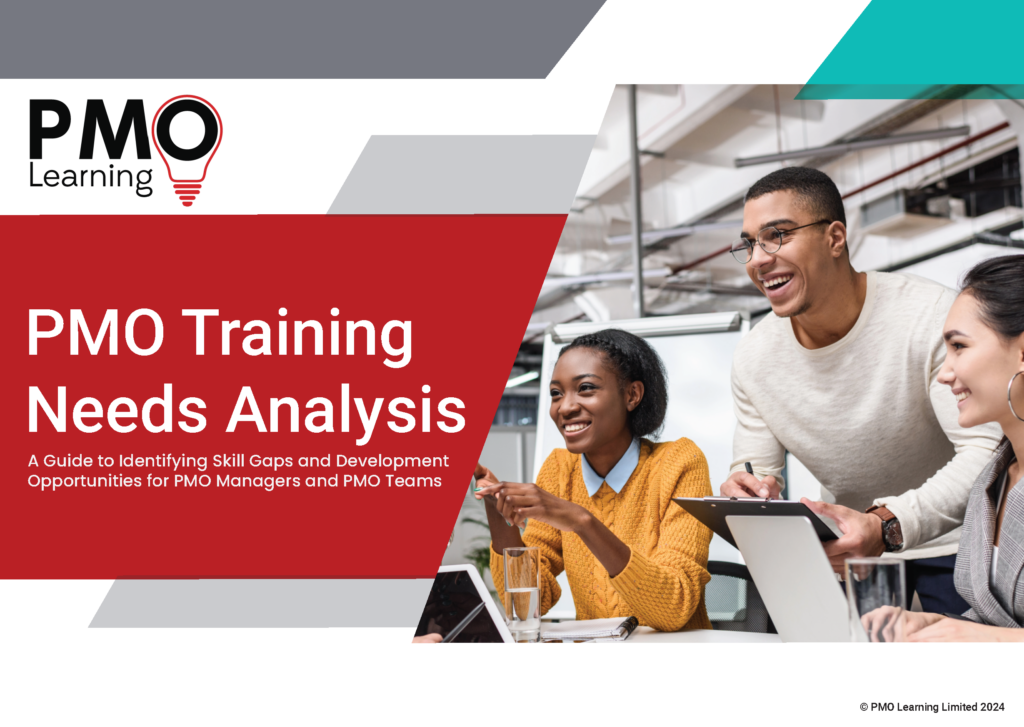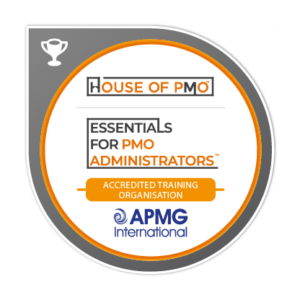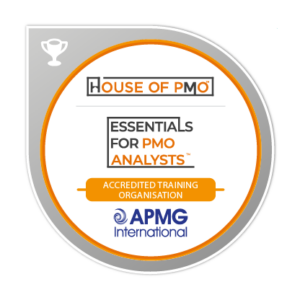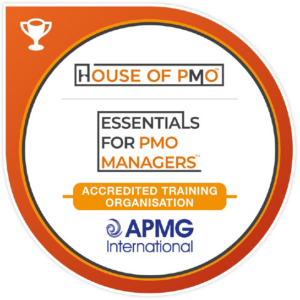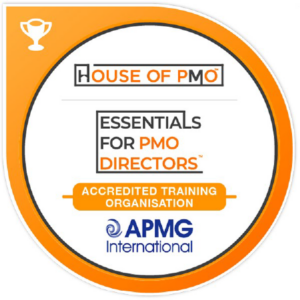
At the end of each year it’s always a good time to reflect back and think about what we might have learnt throughout the course of our working year.
For me personally, I wish I had kept to the New Years resolution of keeping a journal which would have made this reflection a little easier! That said, as we end 2024, this year I’ve been kept busy learning more about generative AI (surely this was the focus for many in 2024?), sustainability in projects, trying to get better at collaboration and communication.
According to the CIPD (Chartered Institute of People Development) that is an ideal ratio of skill development – technical, digital, and interpersonal.
In this article, we’re going to leave the reflections and focus on some of the key trends in the world of learning and development and what that means for you as a PMO professional.
Staying with the CIPD, we kick off with skills development.
1. Skills Development in the ‘Flow of Work’
The term ‘flow of work’ was coined by Josh Bersin back in 2018 and many have picked up the concept because of its underlying principles around agility and adaptability.
“Learning in the flow of work,” emphasising the importance of integrating learning opportunities seamlessly into employees’ daily tasks.
“This approach addresses the challenge of limited time for formal training by embedding learning resources directly within the tools and platforms employees use regularly, such as Office 365, Salesforce, and Slack. By doing so, employees can access relevant information and training materials precisely when needed, enhancing both learning efficiency and job performance.”
It also goes some way to helping people overcome this ongoing problem of never having enough time in the day to carry out professional development or training plus having access to training, support, solutions when you’re in the middle of a task makes a lot of sense.
So six years on from introducing the concept, organisations are picking it up and in some cases getting more creative about how they do it. The Learning at Work 2023 report specifically called out “job aids and performance support tools such as infographics and checklists” which have long been a PMO staple, especially the checklists. Other examples include digital coaching, mobile apps and curated content.
Here’s what you can be thinking about with flow of work learning:
- The shift toward digital learning solutions (+42% net rise in 2023) highlights the importance of PMOs adopting digital tools for staff development. Platforms offering on-demand training, microlearning, and curated content can make learning more accessible and adaptable. Make sure you’re utilising the platforms that your organisation is offering and for external offerings, check out LinkedIn Learning and sites like Coursera.
- Growth in job rotations, secondments, and peer collaborations suggests a trend toward experiential learning. PMOs could formalise these as part of career development plans, leveraging cross-functional exposure to build well-rounded skill sets.
- As only 59% of organizations feel capable of responding agilely to skills needs, PMOs can enhance agility by conducting regular skills gap analyses and using tools like competency frameworks (e.g., PMO Competency Framework) to align training with evolving project demands.
2. Emerging Technologies
Staying with the technology theme, this trend is not so much about the skills needed to use the emerging technology – such as data analytics tools and AI but rather about the use of them to determine the returns of investment in learning and development.
It’s long been a difficult quest to understand what the gains are for productivity and performance – both from an individual and organisation point of view.
The continued use of Learning Management Systems (LMS) monitors and tracks in areas such as participation, completion rates, time spent on training, and assessment scores, but does that go far enough?
AI-driven tools can track behavioural changes post-training, such as improved decision-making, teamwork, and communication, by analysing collaboration tools and workplace interactions.
Tools like dashboards and KPIs can also capture project delivery timelines, quality metrics, and cost reductions that result from training interventions – perhaps you can see how that would work for the Project Managers in your organisation?
There will also be difficulties in isolating training effects from other variables influencing performance yet the expanding use of AI in identifying skill gaps and tailoring training to individual needs creates personalised improvement paths with very measurable outcomes.
Here’s what you can be thinking about with the ROI of learning:
- Supporting coaching approaches such as offering Project Managers access to digitally supported coaching and mentoring systems for one-on-one skill development, or use performance support tools like mobile apps or digital job aids to assist Project Managers in applying training on the job.
- Leverage platforms for virtual workshops, incorporating interactive features like polls, breakout rooms, and simulations to enhance engagement.
- Provide on-demand learning modules or microlearning sessions tailored to current project challenges, e.g., agile delivery techniques or resource management.
- Develop a system to monitor the outcomes of training interventions over time, linking them to improved project delivery or team performance.
3. Reskilling in the PMO
One of the biggest concerns for the future workplace and learning and development (L&D) is not so much about upskilling (defined as the process of enhancing an individual’s existing skills to deepen their expertise) but reskilling.
Reskilling is defined a “training an individual in entirely new skills that enable them to transition into a different role or field.”
According to a recent LinkedIn study:
The skills required for jobs are evolving rapidly, with predictions that 65% of the skills needed in the UK workforce will change by 2030. This highlights the urgent need for reskilling to keep pace with technological and workplace transformations.
I think many of us can guess that reskilling around the technological transformations will mostly centre around artificial intelligence – and the myriad of tools that will continue to come onto the market. For the PMO there are two stand out areas – GenerativeAI (GenAI) and advanced data analytics. Taking a closer look at those two:
- Generative AI (GenAI)
Applications in PMO:
- Streamlining document creation, status reporting, and stakeholder communications.
- Enhancing decision-making through predictive modelling and scenario planning.
- Automating repetitive tasks, like resource allocation and risk tracking.
Reskilling Strategies:
- Training staff to use AI-driven tools for tasks such as creating dashboards, generating insights, and performing root cause analysis.
- Building competency in interpreting AI outputs to ensure human oversight in critical project decisions.
- Advanced Data Analytics
Importance in PMO:
- Helps in effective portfolio management by providing insights on resource utilisation, project ROI, and risk forecasts.
- Enables the PMO to transition from a reporting function to a potential strategic advisory role by delivering actionable insights.
Reskilling Approaches:
- Investing in training for tools like Power BI, Tableau, or other data visualisation platforms.
- Familiarising PMO teams with statistical analysis methods and tools for predictive and prescriptive analytics.
This focus on reskilling equips PMOs to adapt to technological advancements and reinforces their role as the business function that focuses on ensuring project management in the organisation is successful. PMOs could be leading the way in harnessing AI and data analytics for smarter, faster, and more effective project delivery.
4. Cross Industry Adoption
You might have heard of the term ‘steal with zeal’ and that’s exactly what this trend is all about. There are many industries and roles – such as those found in legal, finance, healthcare where learning and development good practices and approaches have been created over the years which are equally applicable to those working in project management and PMO.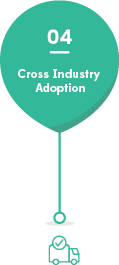
Take for example, the legal industry, where they have created ‘O Shaped’. The O Shaped (https://oshaped.com/) mindset is focused on developing professionals who are well-rounded and equipped with a balance of technical expertise, emotional intelligence, and business acumen – it started in the legal industry but you can clearly see how it could apply to you in your PMO role.
Here’s a little more detail about O Shaped, it includes Five Pillars:
- Openness: Embracing change, feedback, and continuous learning.
- Opportunity: Seeking ways to innovate and improve value delivery.
- Ownership: Taking accountability and empowering others.
- Originality: Encouraging creativity and thinking beyond the traditional scope.
- Optimism: Approaching challenges with a positive mindset and resilience.
This philosophy is particularly valuable in environments requiring agile thinking, cross-functional collaboration, and a focus on delivering value beyond just meeting project deadlines. Sound familiar?
In a PMO setting, adopting an O-Shaped approach would mean fostering a team and culture that balances:
- Technical rigor: Expertise in project, programme, and portfolio methodologies.
- Human connection: Building strong relationships with stakeholders and understanding their goals.
- Adaptive delivery: Tailoring processes and tools to meet the unique needs of each project or organisational change.
Sometimes we don’t need to reinvent the wheel when it comes to thinking about the development of the PMO, or the wider delivery organisation – we just need to take a look around outside of our everyday domain and see what else could be adapted and adopted.
Image Source: The O Shaped Attributes – https://oshaped.com/the-o-shaped-mindset-and-attributes All rights reserved.
5. The New Social Learning
There has long been a social learning theory which stems back to the 1960s with psychologist Albert Bandura. The theory provides a framework for understanding how individuals learn through observation, imitation, and interaction with others. Back then in the 60s the dominant theory was that people learnt by direct experience (behaviourism) so it set an important precedence that saw many different types of learning and development methods – such as on-the-job mentoring, peer learning activities even YouTube videos and other forms of social media.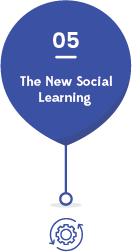
So what’s new? The new trend for 2025, specifically for PMO professionals, is that much of our learning should be coming from other PMO professionals – those that have already tackled some of the challenges you might be facing.
That means a rise in attending conferences and seminars outside of your organisations to hear about how other PMOs are doing it. It also means getting out and about in a post-pandemic world for meaningful networking events where informal chats can be struck up, new professional contacts made.
Another exciting example of social learning is the increasing popularity of communities of practice. These are groups of PMO professionals who come together, either online or in person, to share knowledge, solve problems, and innovate collectively. Platforms like LinkedIn, Slack, or bespoke PMO forums provide spaces for these communities to thrive, allowing for real-time knowledge exchange.
Another emerging trend is mentorship programs that go beyond the traditional one-on-one model. Peer mentoring circles or reverse mentoring (where less experienced professionals teach seasoned ones about new tools or trends) are becoming highly effective.
Finally, collaborative learning through simulation and scenario-based activities is gaining traction. Whether it’s through virtual workshops, hackathons, or role-playing exercises, these methods allow PMO professionals to be more curious, experiment, play, in a risk free environment.
Finally, social learning is particularly vital for the younger generation stepping into PMO and project management roles. Unlike previous generations, they’ve grown up in a world where knowledge is shared instantly and collaboratively, often through digital platforms. They value interactive, peer-based learning over traditional top-down training. This means they thrive in environments that encourage open dialogue, informal learning, and real-time feedback.
For these emerging professionals, reverse mentoring becomes even more powerful, as it allows them to contribute their digital savvy and fresh perspectives while learning from the experience of their peers and senior colleagues. Additionally, they are more likely to seek out knowledge-sharing hubs, such as online communities, collaborative forums, and social media networks tailored to PMO and project management topics.
This generational shift underscores the need for PMOs to create a culture of openness, where younger team members feel empowered to ask questions, propose new ideas, and learn from observing how challenges are tackled in real-world settings. Encouraging participation in these social learning opportunities not only accelerates their growth but also brings fresh energy and innovation into the PMO.
Summing Up
In conclusion, as we look ahead to 2025, it’s clear that learning and development in PMOs is evolving to keep up with the pace of change. Whether it’s learning in the flow of work, reskilling for emerging tech like AI and data analytics, or taking inspiration from other industries like the O-Shaped mindset, there are plenty of opportunities for PMO professionals to grow and adapt. Social learning, too, is playing a bigger role, with mentoring, networking, and knowledge-sharing becoming essential, especially for the next generation stepping into PMOs. By embracing these trends, PMOs can not only stay relevant but also lead the way in creating smarter, more effective ways of working.
And a New Year resolution? Yes, I’m definitely going to pick up that journal so I can really see how much learning happens across the year. I’ll see you here next year and share that with you.
Enjoying Our Blog?
Sign up and receive all our articles (we’ll send you an update once a week!) plus special offers and events:





